Breed-Specific Care for Senior Bulldogs: An In-Depth Guide
If your senior Bulldog is anything like other dogs getting on with their age, it's highly likely that he is going to be more vulnerable to health conditions sooner or later. What's even more alarming is that these could lead to even more serious wellness problems if not dealt with the right way.
Regardless if you have an aging English bulldog or the American, Campeiro, French, Serrano, and Continental variety, we will get you some simple and practical tips that won't just help keep him happy and healthy but also maintain his ideal quality of life.
We're even going to reveal a secret that your old Bulldog will really appreciate in just a bit. How about we start things off by taking a quick look at senior Bulldogs and their possible state of health as they go through their golden years?
Senior Dogs and Their Health
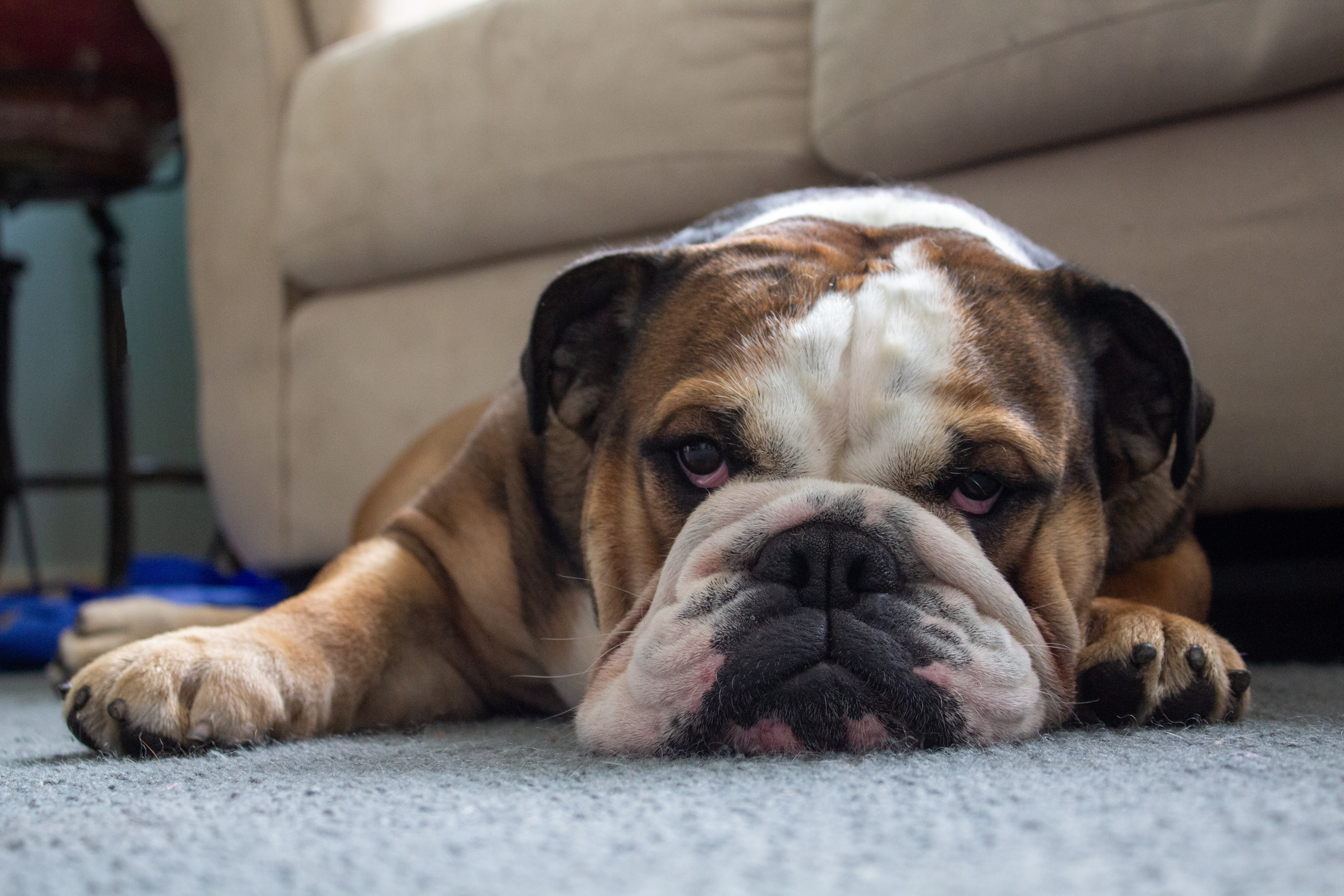
A senior English Bulldog's body will experience a lot of changes as the years go by. Although many of these changes can be observed superficially like more pronounced skin folds and grey hair, it's the ones that you can't see outside that are crucial.
Besides having a weakened immune system that can potentially make your old Bulldog prone to many diseases, sudden changes in his metabolism and ability to absorb nutrients can also lead to brittle bones, worn out joints, and impaired organs, just to name a few.
Whether you're a seasoned pooch parent when it comes to rearing American and English Bulldogs or perhaps just starting out, we've put together this blog post so you can have a checklist of the crucial things to keep in mind as regards giving your pet the care and attention he really deserves at this point of his life.
But before we get to them, let's have a short walkthrough of how this adorable breed started and how it became one of the most popular—not to mention one of the most recognizable—dogs worldwide. Chances are you're going to be surprised with what you will discover, too!
A Dog Breed That Has a Colorful History
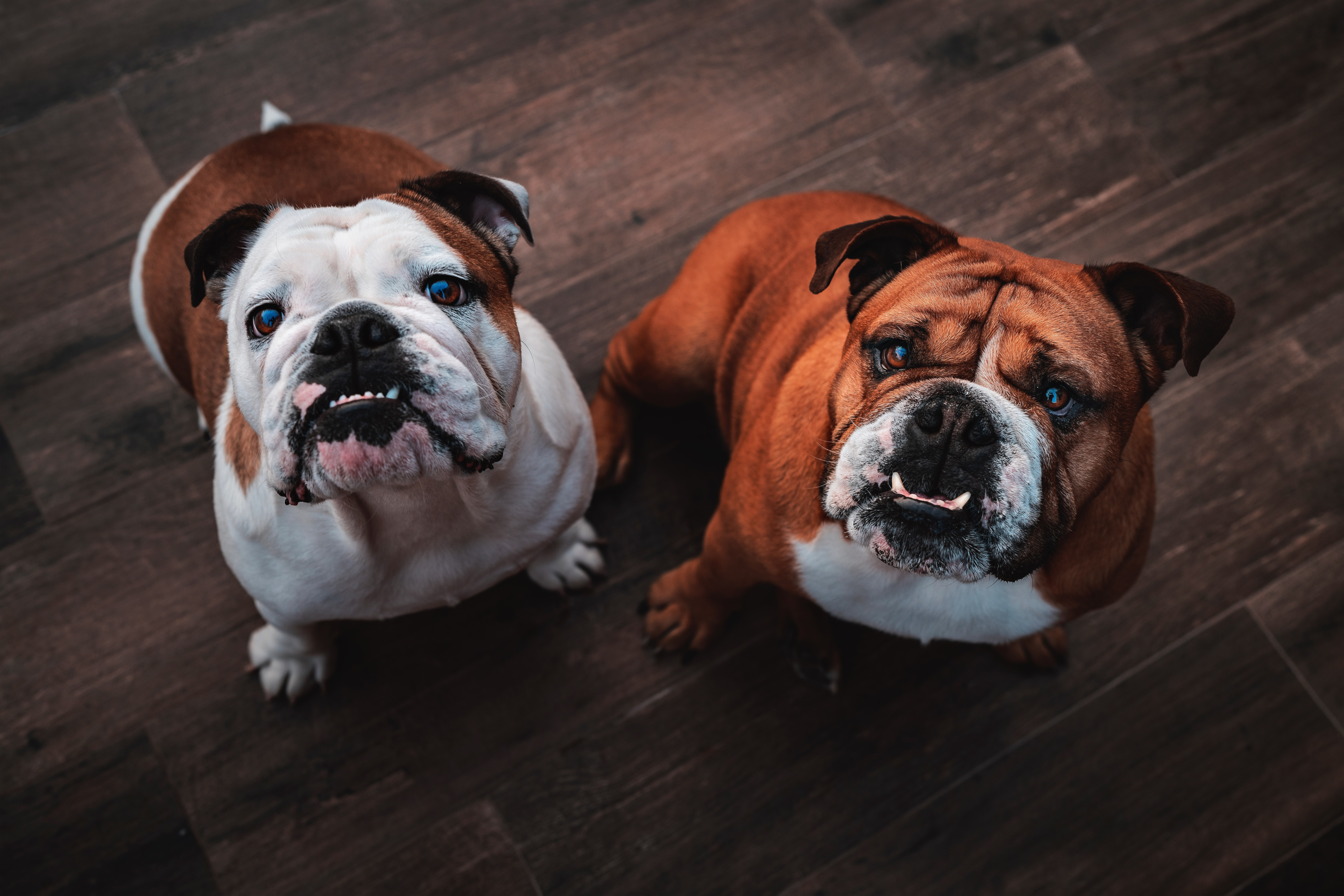
The English Bulldog breed can be traced all the way back to 13th century England. While this breed is characterized by an adorably plump build, a wrinkled and flat face, as well as stubby legs, the ancestors of your senior Bulldog were originally raised to participate in a cruel sport called bull-baiting. Thankfully, it was eventually outlawed!
When bull-baiting was out of the picture, English Bulldogs went through a very significant transformation. Several years of selective breeding took place to refine the signature bulldog temperament and appearance, particularly the uniquely shaped nose and jowls.
The arrival of English Bulldogs in the United States
English Bulldogs arrived in the United States in the 18th century. Although most of them became working farm animals like herding dogs and guard dogs, a few of them caught the eye of dog breeding enthusiasts.
This eventually resulted in the development of the American bulldog, which is a bit bigger and more muscular compared to its English cousin. Other variations like the French and Serrano bulldog soon followed in other parts of the world.
These days, bulldogs have become one of the most well-liked dog breeds worldwide. Apart from being known for their cuddly appearance, the loving personality and gentle temperament of bulldogs have also made them sought-after canine companions for pet parents.
Common Health Issues Your Senior Bulldog Can Be Prone To
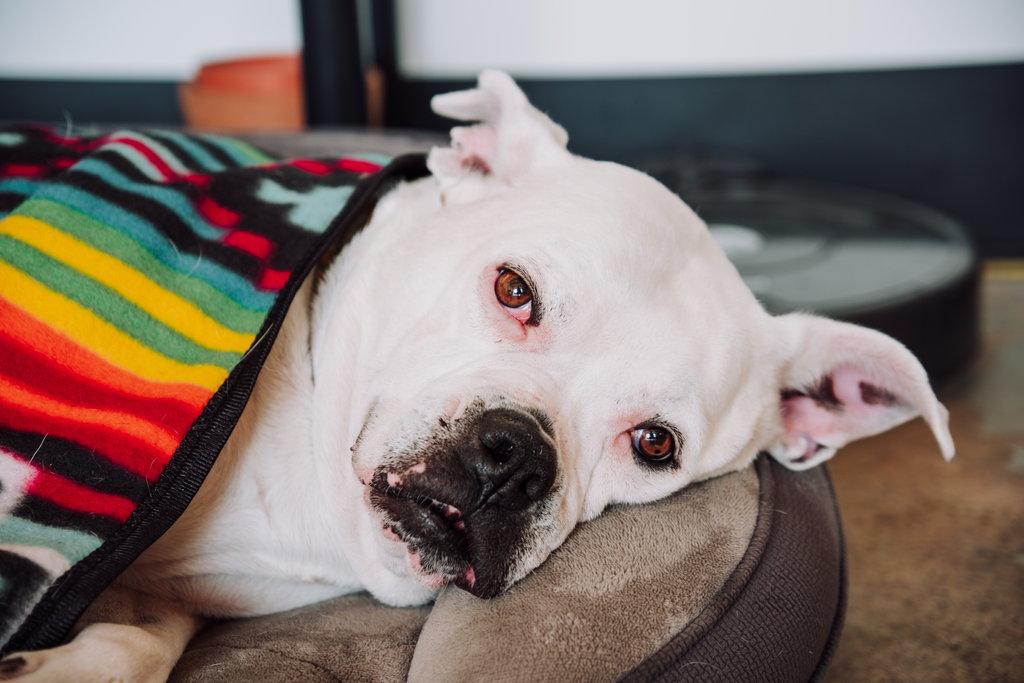
For this part of our discussion, we will check out the most common issues that a senior English Bulldog is highly likely to encounter at some point. The average lifespan of a bulldog is from 8 to 10 years. And as these dogs age, the more vulnerable they will become to these health problems.
Obesity
As we emphasized earlier, an American or English Bulldog will experience a lot of physiological changes the more advanced in age he becomes. One of the more prominent changes that your senior bulldog will go through is a decline in his metabolism rate. Don't worry. This affects senior dogs in different breeds, too.
A slower metabolism rate prevents the body of your much older bulldog from burning as much as calories as possible. This leads to more fat being stored, which eventually results in weight gain. It has even been said that one of the signs of aging in bulldogs is a more noticeable belly during their senior years!
When your senior English Bulldog starts to gain weight all of a sudden, keep in mind not to simply brush the whole thing off. Obesity is a big problem and can negatively affect your much older bulldog's health before you know it.
Breathing difficulties
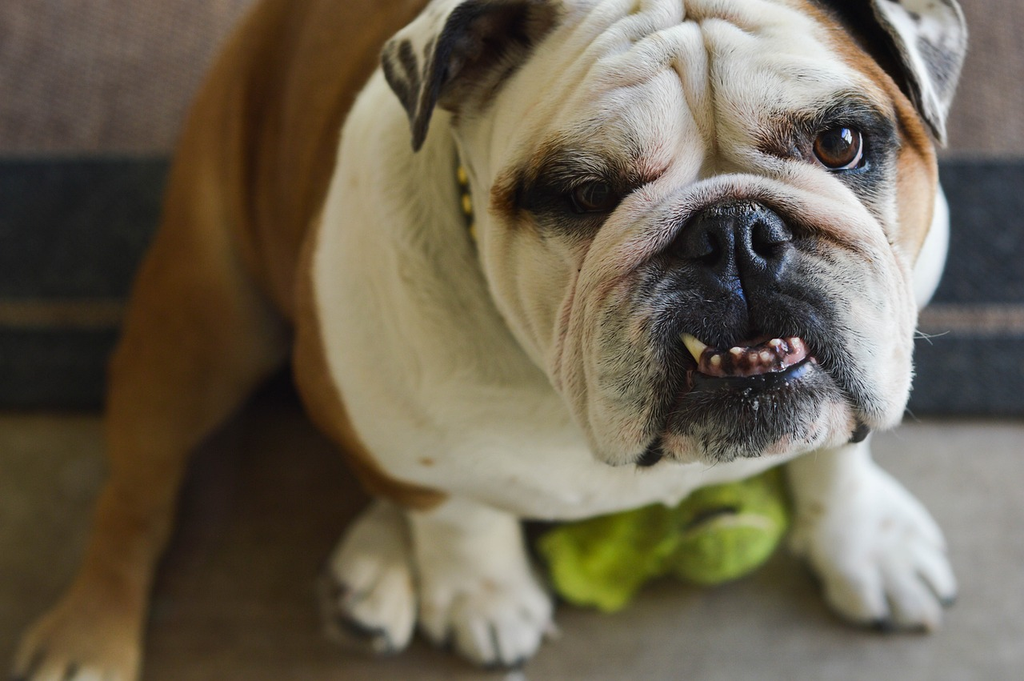
If we're being honest, the most distinctive physical feature of an English Bulldog is his pushed-in nose. This is due to bulldogs having shortened or brachycephalic skulls, which makes them prone to respiratory issues when they become much older.
As bulldogs age, their nostrils can become pinched and make it tricky for them to inhale and exhale through their noses. Bulldogs also have palates that are longer compared to that of a different dog breed like the Labrador Retriever or a German Shepherd. This can tend to partially block their airways, especially when these pooches are excited or engaged in vigorous physical activity.
Although breathing difficulties tend to become more notable in older dogs of the breed, these problems can also persist in young bulldogs. This can be a contributing factor to your pet's susceptibility to heat stroke and overheating.
Skin and coat problems
Akin to other senior dogs, much older bulldogs will tend to have coat and skin issues along the way. These can include having a dull coat, flaky skin, and excessive hair loss, just to name a few. While these problems can be set off by external factors like parasites (ticks and mites) as well as the environment (humid weather and allergies), they can be also attributed to physiological changes that take place as bulldogs age.
Other possible reasons can involve hormonal imbalances—particularly if your senior dog is suffering from Cushing's disease and hypothyroidism—as well as genetics, not to mention stress and anxiety. The lack of proper and regular grooming can also be a contributing factor, especially in the case of dry skin.
Joint problems
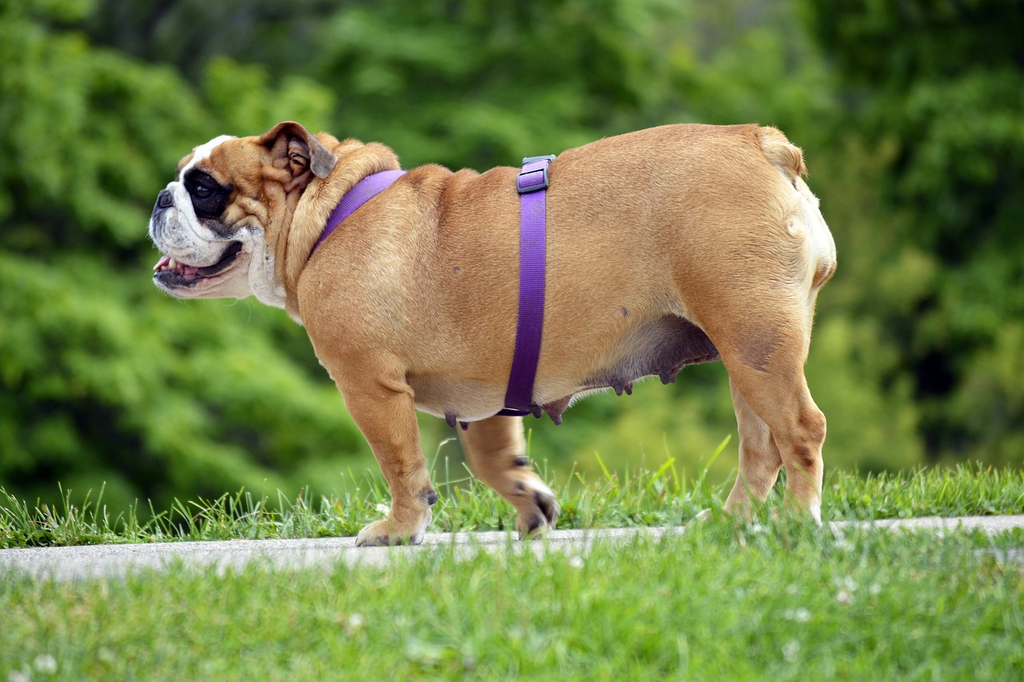
Your old bulldog becomes more vulnerable to joint issues during his senior years. One of the biggest reasons why this happens is that the amount of synovial fluid or natural lubricant in the joints will become very minimal. This leads to the rubbing of joints and bones, which causes anything from mild discomfort to chronic pain.
It has been said joint problems are one of the key signs of aging in the American and English bulldog breeds. Besides affecting the way your senior dog walks and moves, they can also have a negative impact on his posture sooner or later.
The most common joint issues in older dogs are degenerative joint disease and canine osteoarthritis. They can cause significant decreased mobility and even muscle atrophy in very serious cases. However, trauma and injury can also be possible reasons. It is crucial to schedule a trip to the vet and have some X-rays if you observe that the problem persists.
Cognitive dysfunction
Another health problem that is common among older dogs of the breed is canine cognitive dysfunction. This can be likened to that of dementia in humans and is usually characterized by recurring bouts of confusion, disorientation as well and a drastic change in behavior and mood.
In this situation, your typically gentle and outgoing senior English bulldog may suddenly become aggressive or will choose to hide under the furniture instead of playing and socializing. Other canine mental health problems such as separation anxiety, depression, and compulsive disorders may also get in the picture.
Oral and dental disease
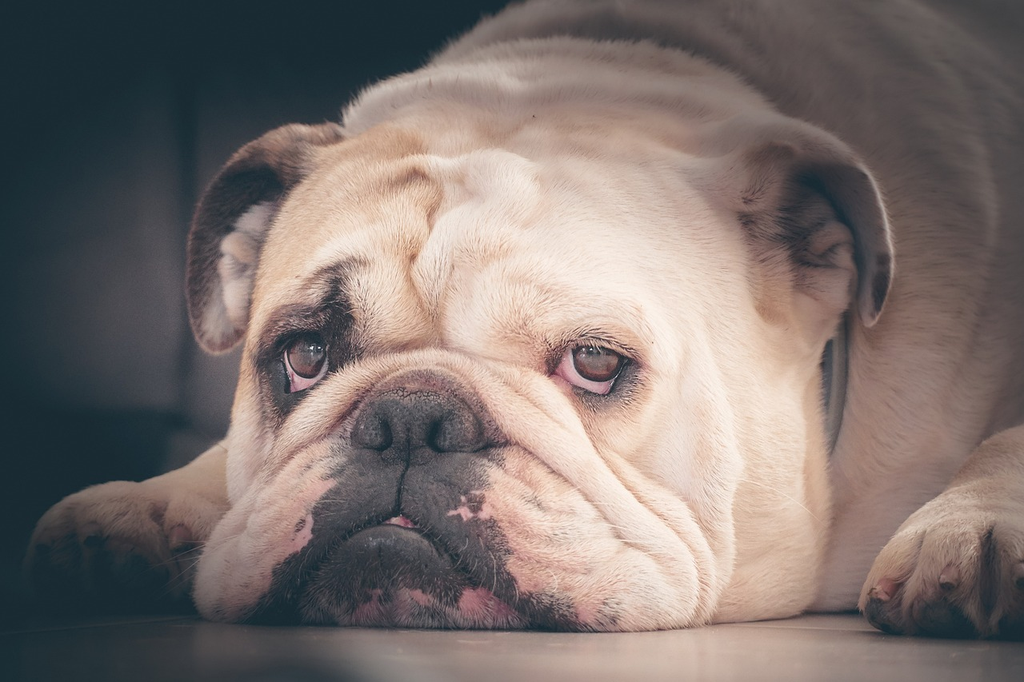
While a puppy can already be at risk of tooth decay, gum disease, and similar dental issues at a very young age, these problems become more significant as bulldogs age. Besides the complete lack of oral and dental hygiene, the wrong choice of dog food is also seen as a contributing factor, particularly those that are highly processed and contain too much sugar.
What's really interesting is that repeatedly giving your senior bulldog table scraps and other "people food" can also be attributed to oral and dental issues. These include starchy foods like pasta, crackers, and bread, which can stick to the teeth, gums, and tongue.
Unless completely and properly removed, this food debris can draw in bad bacteria that can result in bad breath or periodontal disease depending on the circumstances. Tooth decay can also be an issue if this isn't corrected the right way.
Hearing and vision loss
When an American or English Bulldog reaches his golden years, some internal parts of his ears may experience a bit of deterioration. This can include damage in the sensory cells that are responsible for detecting and picking up sound. If not nipped in the bud, this may even lead to partial hearing loss in some cases.
Similarly, a senior bulldog can be highly at risk of vision loss because of the degradation of the retina, lens, and pupils. If his immune system is not that resilient or he is genetically predisposed to vision problems, other eye-related problems like corneal ulcers, progressive retinal atrophy, and cherry eye can also emerge.
Heart disease and other organ issues
There are two (2) very prominent heart problems in much older bulldogs, namely dilated cardiomyopathy and degenerative valve disease. Dilated cardiomyopathy basically prevents the ideal blood flow in and around the heart, while degenerative valve disease refers to the weakening and abnormal enlargement of the heart's chambers.
With respect to other organ issues, a senior bulldog can be vulnerable to kidney disease, respiratory problems concerning the lungs, liver disease as well as inflammatory bowel disease. The risk of your dog being afflicted with these problems can be reduced by proper diet and having a regular exercise routine. Boosting his overall immune system health can help a lot, too.
Signs of Health Problems in Older Dogs
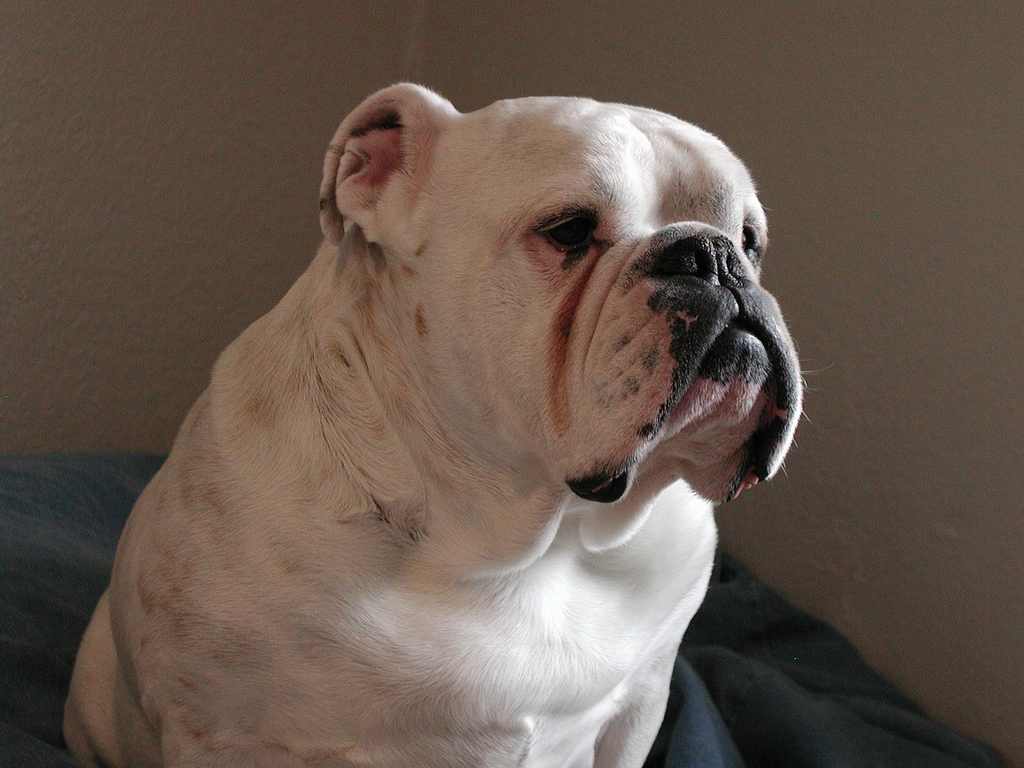
A very crucial thing to keep in mind when it comes to dealing with a bulldog's health issues is early detection. This strategy is also applicable if you've got a puppy or a juvenile dog. Make sure you take note of the following indicators of bulldog wellness problems:
Changes in eating and drinking patterns
An old bulldog is still going to have a hearty appetite. However, if you notice your pooch frequently eating less or even ignoring his favorite dog food and treats, it is highly likely that he is going through an illness or a possible disease. Drastic changes in diet usually involve gum disease or tooth decay.
The same goes for his drinking habits. If his water consumption becomes too little or too much all of a sudden, he may be suffering from diabetes or kidney problems. It is important to never ignore details like these—no matter how minor they are—because they can have negative effects on his quality of life already.
Changes in mood and behavior
If your typically energetic and gentle dog becomes unexpectedly lethargic and brooding, chances are he may be suffering from some health issue. Possible reasons include gastrointestinal issues, dehydration, bacterial infections, viral diseases as well as the presence of internal and external parasites like heartworm, tapeworm, hookworm, fleas, mites, and ticks.
We highly recommend that you get in touch with a pet wellness expert or a vet as soon as you observe these behavioral and mood changes in your dog to keep more serious health problems at bay. Simply shrugging off these signs can potentially lead to alarming consequences.
Changes in daily activity
Chances are you're already familiar with the "daily schedule" of your much older bulldog by now. Aside from his food preferences, you also know the activities that he likes to do during your bonding sessions and exercise routine.
However, drastic changes in his routine can mean wellness issues. A prime example is when he chooses to get less and less exercise. This can possibly mean that he is suffering from joint problems or he may be going through some respiratory issues. Serious dental health problems can also make your senior dog lethargic.
Changes in bathroom habits
It's highly likely that you already know the bathroom routine of your aging bulldog by now. One of the signs that he's going through a health issue is a drastic change in his "schedule" when it comes to answering the call of nature.
Moreover, if your dog is urinating too often or significantly less than he used to, or perhaps his bowel movement is frequently getting erratic, make sure you reach out to a vet or a pet wellness expert immediately to zero in on what the problem is.
Changes in breathing rhythm
The most distinct physical feature of the bulldog breed is its brachycephalic head, which gives these dogs the appearance of having a "pushed-in" snout, nose, and face. However, this asset can also put your much older dog at risk of respiratory difficulties when he reaches his senior years.
Common signs that these dogs are experiencing breathing problems are constant panting, wheezing as well and suddenly stopping midway when you're engaged in some form of physical activity. It is crucial to take note that a senior bulldog (or a puppy in some cases) with respiratory issues can be extremely prone to hyperthermia, especially in very hot weather.
Changes in skin and coat appearance
The skin and coat of aging bulldogs tend to be more vulnerable to a lot of problems. Apart from being highly at risk of the negative effects of allergies, such as itching, inflammation, and hair loss, these dogs may also display a duller coat during their golden years.
It is important to remember that dogs advanced in age can experience skin and coat problems either independently or simultaneously. This is why it's crucial to be constantly on the lookout for signs of any disease or illness no matter how healthy or happy your dog may appear.
Bulldog-Specific Senior Care Tips You Should Know
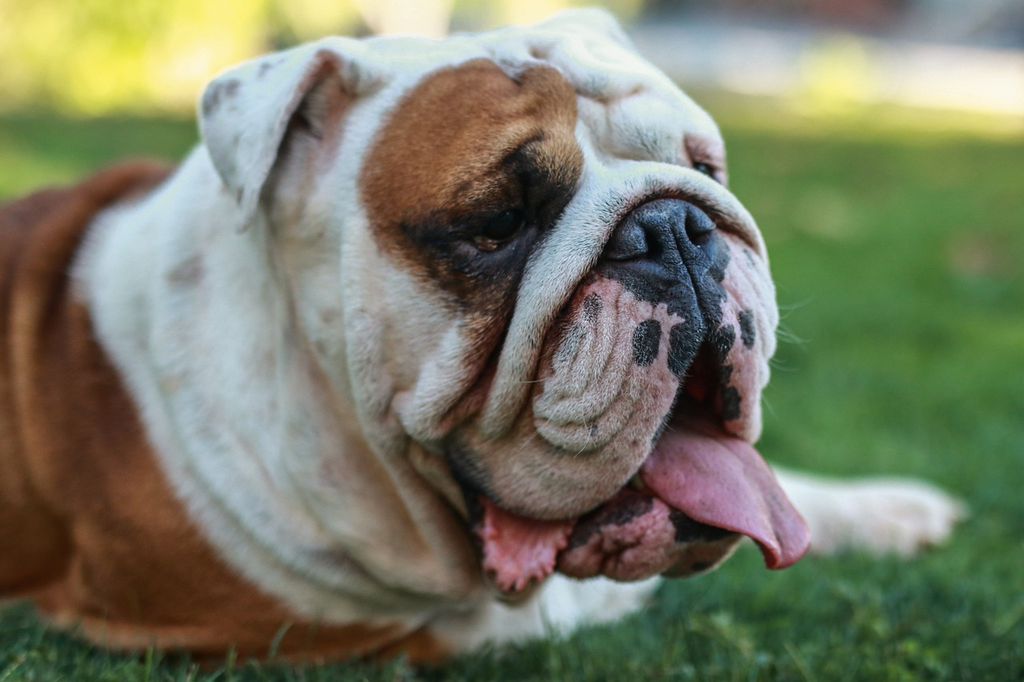
Now let's have a rundown of the senior bulldog care tips you should have in your home pet care checklist. Besides touching on points like food and diet, we will also go over some practical pointers with regard to exercise and other factors that can significantly help in maintaining your pet's overall quality of life.
#1. Regular check-ups are a must.
It's not uncommon that dogs at their senior age will be much more prone to health problems. Make it a point to drop by your vet regularly to not just detect disease and illness early, but also properly deal with them in the soonest time.
However, if you're looking for a much more convenient alternative, you can also schedule an online homeopathic consultation. It not only provides a personalized solution for your pet's health concerns but targets the root of your pet's problem—instead of just the symptoms—in the process.
#2. Make proper and regular grooming a mainstay in your schedule.
Proper and regular grooming is crucial not just for much older dogs, but also for other animals that you may have in your home as pets. It primarily helps in prevent unwanted visitors like parasites from infiltrating your dog's body and causing problems along the way. At your dog's age, these issues are definitely not something to overlook.
Dog teeth brushing should be done at least twice a day. Giving aging dogs a thorough wipe down must be on your pet care checklist at least once daily. However, we would just like to emphasize that "having a wipe down" and "bathing" are two different things. It is highly recommended that you only bathe your dog every three (3) to four (4) weeks or if it's really needed.
#3. Maintain a regular low-impact exercise routine.
Unlike what a lot of people mistakenly believe, a senior bulldog will still need a regular workout routine to stay in tiptop shape. Not having exercise in his daily schedule can make your pet gain weight, which can lead to health issues like diabetes, hypertension, and even heart failure.
However, go for low-impact exercise routines when engaging your older dog in physical—not to mention mental—activity. Examples of these include short walks, swimming, playing fetch as well and learning new tricks and commands. Bringing along a bit of his favorite food and treats when you get in action is also a smart way to keep him participative.
#4. Be more conscious of his comfort and safety.
Your senior bulldog is going to be more sensitive to his environment due to his age. Whether it's your pet's toys or his dog bed, he may be prone to canine mental health problems like stress and anxiety if his comfort is neglected.
Additionally, the same goes for the safety of your much older pooch. Your aging bulldog won't be as nimble and lively compared to when he was still a juvenile or young adult. Be very meticulous in choosing the physical activities that you will engage him in and don't forget to be always prepared for emergency pet situations.
#5. Give your aging bulldog the right diet for his age.
A senior dog needs the appropriate diet to maintain an overall healthy quality of life. Your choice of food and the number of servings play a very important role in pulling this off. Choosing the wrong food options will not just lead to weight issues like obesity, but also potential dental problems like tooth decay.
While this may sound a bit simplistic, avoid giving your pooch puppy food and other edibles that are not designed for his age bracket. Make sure you serve the same amount during mealtimes to avoid overfeeding.



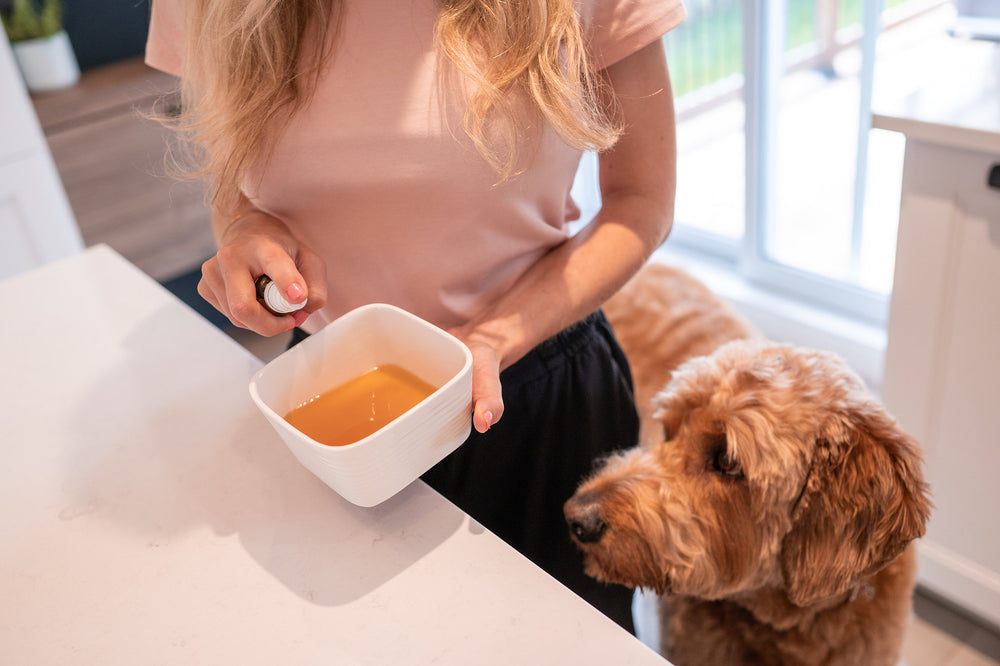


Leave a comment